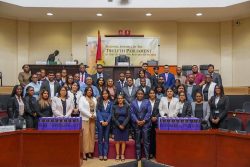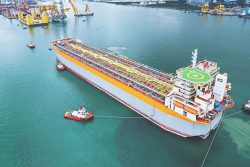Dear Editor,
Please permit me space in your columns to share my views on an important issue -D&I a top priority to mitigate against flooding. In recent years, the Ministry of Agriculture in Guyana has allocated significant resources to improving the country’s drainage and irrigation infrastructure. In 2023 alone, the Ministry spent approximately GYD 4 billion (equivalent to USD 19 million) on various projects across the nation. This substantial investment was aimed at enhancing agricultural productivity, preventing flooding, and securing water resources for both farming and residential purposes.
The expenditure on drainage and irrigation is a crucial component of Guyana’s agricultural strategy, as the country heavily relies on its agricultural sector. By improving the drainage systems, the Ministry aims to mitigate the risks of flooding, which has historically affected the country’s low-lying coastal plains where the majority of farming activities take place. This is particularly vital during the rainy season when excessive rainfall can lead to waterlogged fields, damaging crops and disrupting livelihoods.
Enhanced irrigation systems, on the other hand, ensure a reliable water supply during dry spells, thereby supporting consistent agricultural production. This is especially important for rice, sugar, and other staple crops that are critical to both local consumption and export markets. Reliable irrigation can lead to higher yields and more efficient water use, which is increasingly important in the face of climate change and variable weather patterns. Moreover, the improved infrastructure benefits rural communities by safeguarding homes and public facilities from flood damage. It also supports local economies by creating jobs during the construction and maintenance phases of the projects.
Overall, the Ministry of Agriculture’s investment in drainage and irrigation not only underpins the agricultural sector’s resilience and productivity but also promotes sustainable development and food security in Guyana. By addressing both the challenges of excess water and water scarcity, these projects are set to provide long-term benefits to the nation’s economy and its citizens.
Sincerely,
Fawaz Harry









